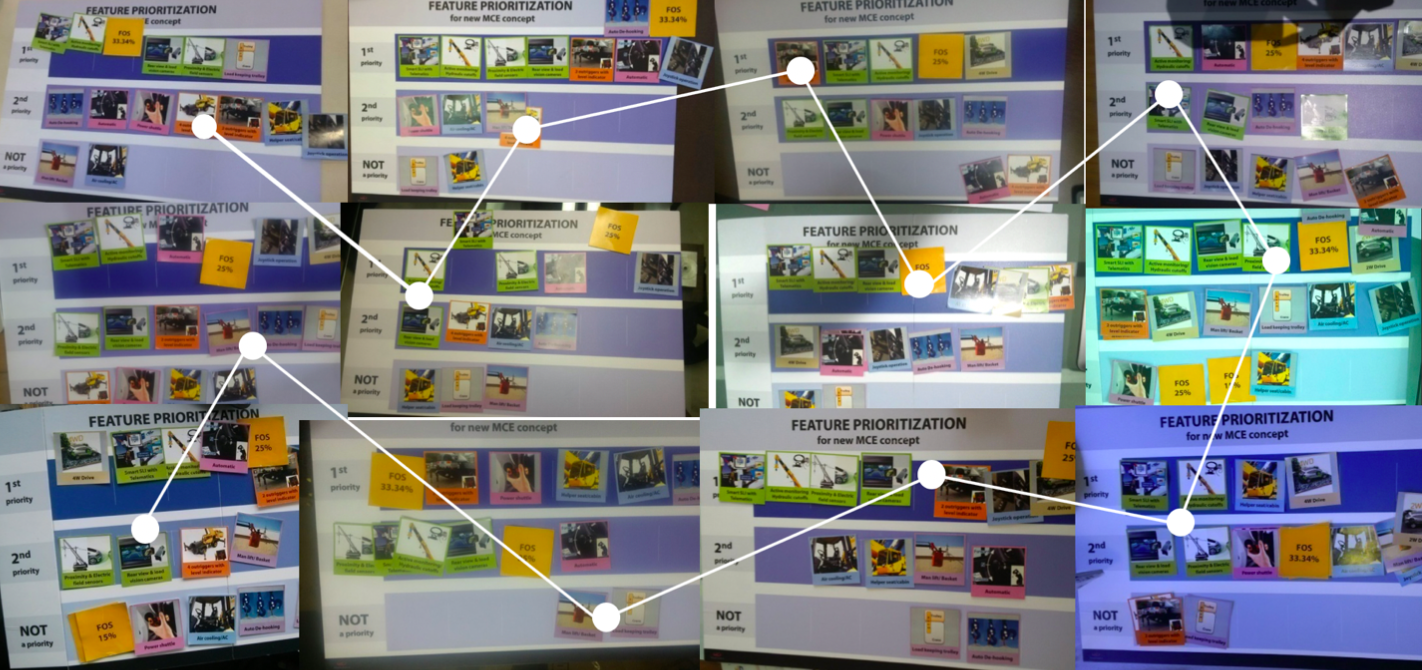Design-led feasibility research for a new product platform
Background
The construction equipment division of an Indian conglomerate was considering launching a higher tonnage crane. Their options included either upgrading existing hydra cranes to higher tonnage (a quicker plan), or opt for a completely new platform, with better scalability but a higher gestation period.
The client team had conducted some prior field research, but they needed assistance with structure and rigor, to lead to a final decision.
Project Brief
Plan stakeholder research in a Design Thinking led methodology and help the team decide on Go-No Go situation for the new 14-ton crane platform
If there is a Go, then evaluate the feature priority list for a given price point with the potential customers and influencers
Train the client team in this process, for an ethnographic field research/observational research
Suggest a launch plan with relevant pricing and messaging for the new platform
(Feature prioritization card-sorting method, in empathic interviews, with the crane-fleet owners across several cities)
Challenge
The client had a large assortment of decorative lighting products in their portfolio but what concerned them was a low sales contribution per SKU for their offerings. Hence the core premise for this
Approach
We prepared a mixed-method research plan that started with understanding the pile of data our client team had already collected from competitors and the field. Our first task was to understand the thumb-rules of this business and build the relevant vocabulary to understand the nuances in a field conversation. Some of the tools we deployed includes-
Do-along
Do-alongs with machine operator - Observer uses the product along with the operator the way they use. The process is observed, recorded and questions are asked after observing their usage pattern
Day-in-life
1-2 full day spent on road construction sites to understand the laborers’ task flow and equipment usage habits. It helped to map the new cross-connections between various interactions & the user behavior
In-depth interactions
In-depth interactions conducted with contractors, supervisors, operator, supporting labor etc. to essentially corroborate the readings from do-along and day-in-life
Co-creation of strategy with the client team
Co-creation workshop
Based on the analyses of technology research and usage research our team prepared appropriate cue/aids for the co-creation workshop. Our team then facilitated co-creation to synthesize design and business directions for product development in road construction equipment.
Key Discoveries and Client Impact
Our research resulted in bringing clarity in the client’s mind on why it was necessary to take the long route of development with the new platform and not extend the current one. The client also developed a shared understanding of potential barriers and must-haves for the new platforms.
We could also prepare a market-differentiated feature list that would be must-have vs the features that would go on a premium model.
The client team also learned to validate their hunch via a rigorous user-driven process rather than a dry brainstorming in the corporate offices.
One of the oblique gains in this process was a few confirmed leads for the new product, from the customers we interacted with. Deeper interaction with the stakeholder in an empathic research process always builds a great pipeline for future development and builds a reputation of the brand as the one that ‘tries to understand customers well’.




